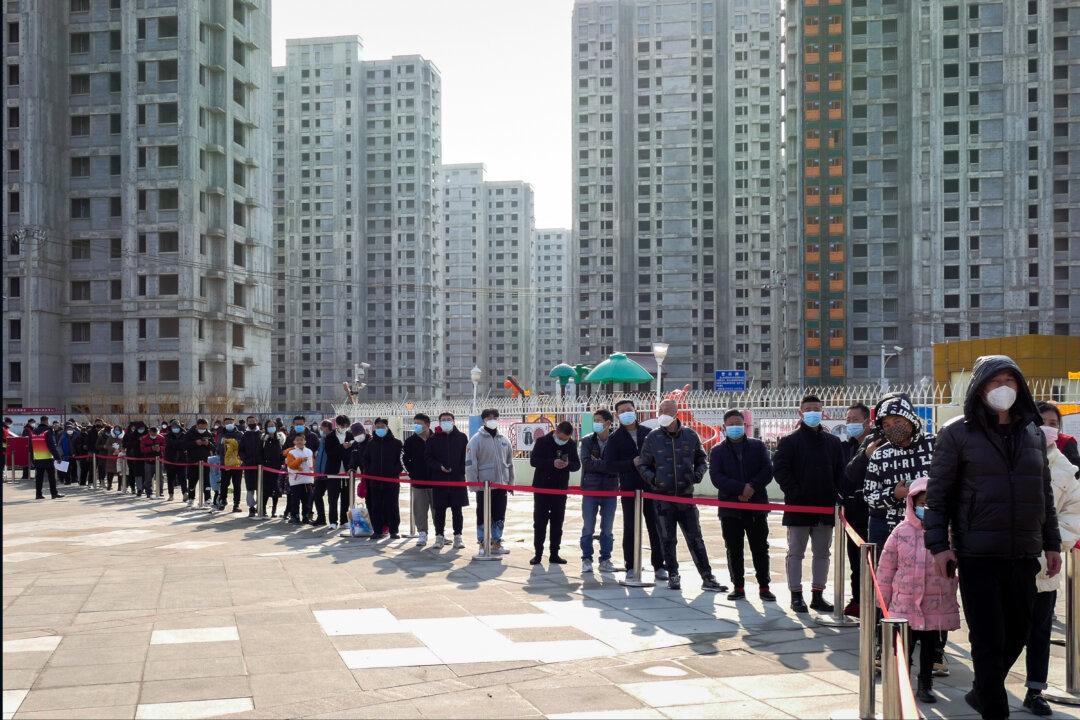A northern Chinese port city has begun mass testing and locking down areas where the highly contagious Omicron variant has been reported, prompting residents to stock up on food and supplies.
The megacity of Tianjin has advised residents to not leave town for unnecessary reasons and began testing its 14 million residents on Jan. 9, less than four weeks before the Winter Olympics will open in neighboring Beijing.




